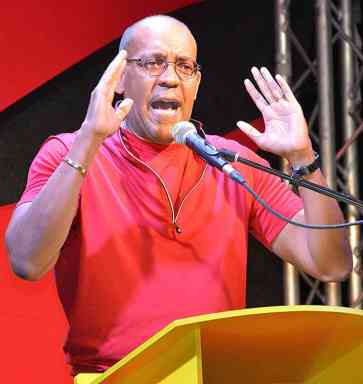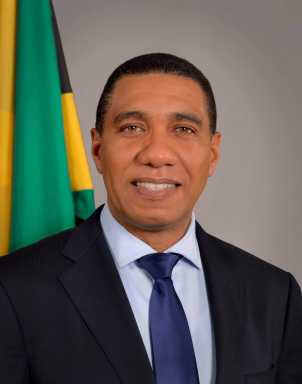Listeners:
Top listeners:
-
play_arrow
RadioJLR Just Press Play
Antigua and Barbuda
Doctors, nurses, and activists in Antigua and Barbuda are fighting a colonial-era law that essentially bans abortions, triggering a debate about women’s reproductive rights.
This month, a top local court ruled that a legal challenge launched by a doctor and a non-profit organization will go ahead as it dismissed the government’s motion to strike the case.
Attorney Sherrie-Ann Bradshaw, who filed the constitutional challenge, said if the case prevails, it could yield a landmark decision and prompt other jurisdictions to follow suit.
Abortion in Antigua and Barbuda is only allowed if a woman’s life is in danger. Laws dating from when the nation was under British colonial rule dictate that women who terminate their pregnancies under other circumstances could face up to 10 years in prison, and those who help them could face up to two years.
“Women’s rights are being trampled,” said Alexandrina Wong, executive director of the non-profit Women Against Rape.
Wong hoped for a favorable hearing, though she acknowledged that pressures from local religious groups tempered her optimism.
Bahamas
The Bahamas has sent a six-member advance team to join the Kenya-led Multinational Security Support (MSS) Mission tasked with restoring security in Haiti, where criminal gangs have been in control with most of the capital, Port au Prince.
The Royal Bahamas Defence Force (RBDF) said in a statement that the advance team will be joining the MSS, which is “an effort spearheaded by CARICOM (Caribbean Community) in partnership with international allies such as Kenya, Jamaica, and Belize.”
“This coordinated mission will provide critical support to help restore peace and stability in Haiti,“ the RBDF said, adding that the officers will serve for six months in “a challenging but necessary deployment aimed at making a significant impact on the region’s security.“
“Their participation not only enhances The Bahamas’ role in regional security but also supports broader CARICOM-led efforts,“ the RBDF said.
Earlier this month, Haiti’s Prime Minister Garry Conille described his visits to the United Arab Emirates (UAE) and Kenya as the French-speaking CARICOM country seeks to improve its socio-economic, security, and political situation.
Barbados
Barbados Prime Minister Mia Mottley seeks to turn Caribbean debt into a resource for crucial development and sustainability.
In July, Barbados entered into a deal with the European Investment Bank (EIB) and Inter-American Development Bank (IDB) to guarantee a US$300 million debt. Under the arrangement, the savings from the debt swap will be used to fund projects that improve water supply and security and reduce pollution.
The Barbadian prime minister, who will become the next chair of CARICOM soon, said she will pitch a similar approach to other member states when she takes up that role.
Speaking during a session entitled ‘Climate Voices: Catalyzing Private Finance — Barbados’ Debt for Climate Conversion‘ at the International Monetary Fund annual meeting in Washington DC recently, she said, “Then we would be able to discuss with member states the possibility of a regional debt swap, and it may not necessarily be on climate alone, but if we are true to walk the walk and believing that we can’t choose between people and planet, then we need to also bring the SDGs to the table. And there may well be, as the IDB is discussing with the Bahamas, debt for social, whether it is education, health, or citizen security.“
The Barbadian prime minister detailed plans to use her country’s debt to leverage the development of a water treatment facility, which would help address Barbados’ perennial water supply concerns.
CARICOM
Caribbean Community (CARICOM) countries could benefit from the International Monetary Fund’s (IMF) decision to approve a set of reforms to its concessional lending facilities and an associated funding strategy to preserve the financial institution’s ability to provide adequate support to low-income countries (LDCs) over the long term.
In the past, Caribbean countries have complained about the policies by which concessional financial assistance might be extended to help their economies.
The Washington, DC-based financial institution said that the reforms follow the “2024 Review of the Poverty Reduction and Growth Trust (PRGT) Facilities and Financing—Reform Proposals,“ even as it has significantly scaled up support to its low-income members in response to the COVID-19 pandemic and subsequent major shocks.
The IMF said that outstanding PRGT credit has tripled since the pandemic’s onset, while the SDR interest rate funding costs have risen sharply. As a result, the PRGT faces an acute funding shortfall, with its self-sustained lending capacity projected to decline well below expected demand.
The reforms approved by the IMF’s Executive Board aim to maintain adequate financial support for LICs while restoring the PRGT’s self-sustainability.
The Executive Board endorsed a long-term annual lending envelope of SDR 2.7 billion (US$3.6 billion) and approved a package of policy reforms and resource mobilization to support that lending capacity.
The amount, more than twice the pre-pandemic capacity, is estimated to ensure that the Fund can use its limited concessional resources to continue providing vital balance-of-payment support to LICs while supporting strong economic policies and catalyzing fresh financing from other sources.
Haiti
Gangs in Haiti have rapidly increased their violence and expanded their operations outside the capital of the French-speaking country, even attacking small boats and kidnapping personnel from cargo shipping companies, said the top UN official in the country recently.
Special representative Maria Isabel Salvador told the UN Security Council that the situation has worsened in the last three months, with more than 700,000 people now displaced in the country and the political process facing “significant challenges.”
She said that Haitians across the country continue to suffer as gang activities escalate and expand, “spreading terror and fear, overwhelming the national security apparatus“ and worsening an “extremely dire“ humanitarian situation.
Gangs are also attacking small boats carrying Haitians from the capital, Port-au-Prince, to other areas of the country, and they have kidnapped personnel from international cargo freight companies, forcing them to suspend service to Haiti, Salvador said.
Catherine Russell, executive director of the UN children’s agency, UNICEF, told the council the “catastrophic situation“ for Haiti’s children that she reported six months ago has deteriorated further. She said over 360,000 of those currently displaced are children.
Jamaica
The World Bank says it has signed a new investment agreement with the Government of Jamaica to enhance the waterfront in Jamaica’s capital, Kingston.
The Washington-based financial institution said that the US$12 million funding will be used to develop an iconic, multi-use waterfront park, expand economic development opportunities, and strengthen capacity to attract private sector investments to the area.
It said that Kingston — Jamaica’s most densely populated city and the hub of the country’s economic activity — faces “significant challenges in terms of liveability, climate resilience, and competitiveness.
“The historic core of the city, downtown Kingston and its waterfront, has been under-utilized, exacerbating issues of crime, poverty, and inequality,“ the bank said.
“Recovering the Kingston Waterfront is crucial for expanding economic opportunities for local communities, improving quality of life, and fostering social cohesion in the area.
“Well-designed and maintained public spaces also enhance safety and contribute to a wide range of positive health and environmental benefits,“ added the World Bank.
Lilia Burunciuc, World Bank director for the Caribbean, said urban renewal in downtown Kingston can be “transformational.”
“It is not just about rebuilding infrastructure; it’s about creating thriving neighborhoods that inspire economic prosperity,“ she said. “We hope that this project will be able to contribute to this vision through job creation, youth empowerment, and community engagement.“
Nigel Clarke, Jamaica’s Minister of Finance and the Public Service said the Andrew Holness-led government is “creating public spaces to serve the Jamaican people,“ stating that the project will revitalize downtown Kingston.
“This project is a game changer, demonstrating how we’re leveraging economic stability in the interest of the people,“ he said.
“Lowering our debt is not an end in itself; it is a means to improving the quality of life for Jamaicans.”
— Compiled by Devika Ragoonanan
Similar posts
© 2025. All Rights Reserved by Radio-JLR




Post comments (0)